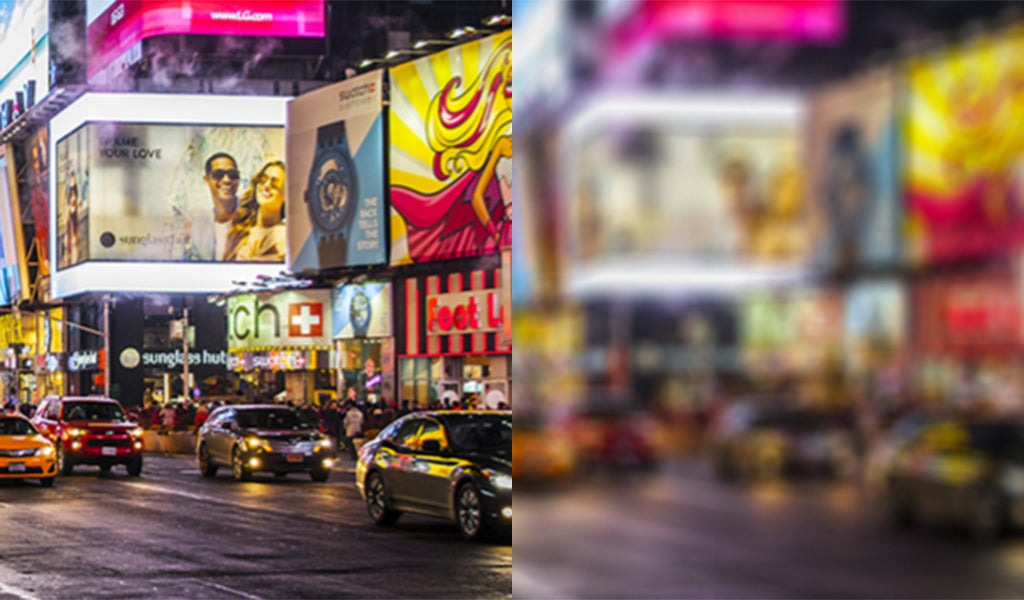What alcohol really does to your eyesight
Interactive graphic shows the 'beer goggle' effect on vision

Your support helps us to tell the story
From reproductive rights to climate change to Big Tech, The Independent is on the ground when the story is developing. Whether it's investigating the financials of Elon Musk's pro-Trump PAC or producing our latest documentary, 'The A Word', which shines a light on the American women fighting for reproductive rights, we know how important it is to parse out the facts from the messaging.
At such a critical moment in US history, we need reporters on the ground. Your donation allows us to keep sending journalists to speak to both sides of the story.
The Independent is trusted by Americans across the entire political spectrum. And unlike many other quality news outlets, we choose not to lock Americans out of our reporting and analysis with paywalls. We believe quality journalism should be available to everyone, paid for by those who can afford it.
Your support makes all the difference.Most of us are well aware of the detrimental impact alcohol abuse can have on our bodies. At the less extreme end of the spectrum we understand that being even slightly intoxicated causes blurry, distorted vision, but what are the real physiological consequences to our eyes?
Alcohol does have short term vision-altering effects, but excessive consumption can lead to long term, life-changing eye conditions. Both long term alcohol abuse and short term excessive alcohol use can lead to permanent loss of vision owing to the direct effect of alcohol on the optic nerves. These are the nerves that carry the vision from the yes to the brain. Whilst it is the eyes that do the ‘looking’, it is the brain that does the ‘seeing’. Toxic amblyopia is the term used to describe permanent loss of vision and blindness caused by alcohol.
Consuming alcohol in moderation will not have any lasting negative effects on your eyes. The way your body responds to alcohol depends on the amount consumed and your tolerance threshold, but you will most likely experience some dizziness and blurry vision. These symptoms will likely stop shortly after a drinking episode if you do not consume too heavily.
If you regularly drink large volumes of alcohol, you’re at a higher risk of developing eye conditions that will alter your vision and cause permanent damage. Repeated episodes of heavy drinking puts significant strain on the liver and, just as the eye is associated with many other organs of the body, heavy drinkers will be more prone to eye conditions and declining eyesight.
Alcohol also slows the pace of communication between neurotransmitters in the brain. Neurotransmitters are chemical messengers that communicate information around the brain and to the body. The delay in communication between the brain and the eyes means that they are not able to function effectively which weakens the eye muscle coordination. This is what causes distorted or double vision.
Click here to open full size interactive graphic
Excessive drinking also decreases the reaction time of your pupils, meaning that they are unable to constrict or dilate when reacting to ambient light levels and impairs the ability see contrasting colours or different shades of similar colours.
Other consequences of drinking too much are:
- Sensitivity to light due to migraines
- Red or bloodshot eyes caused by alcohol swelling the blood vessels in your eyes
- Rapid eye movement – an involuntarily movement back and forth
You can avoid these side-effects by drinking occasionally and in moderation. Pace yourself (it is recommended to limit yourself to one alcoholic beverage per hour), never drink on an empty stomach and consume plenty of water in between alcoholic drinks in order to prevent intoxication.
Our bodies are all different, meaning our reactions to alcohol will also be extremely varied, but it’s wise to always consider the recommended units of alcohol. For men it is advised to consume no more than 4 units in one day and 21 units per week, for women the recommended limit is 3 units a day and 14 units per week. Sticking to these guidelines will help you maintain bright, healthy eyes.
Alexander Ionides BSc FRCOphth MD is a Consultant Ophthalmologist at Clinic Compare
Join our commenting forum
Join thought-provoking conversations, follow other Independent readers and see their replies
Comments